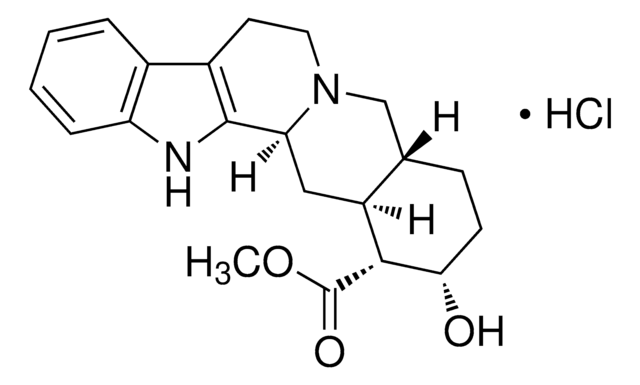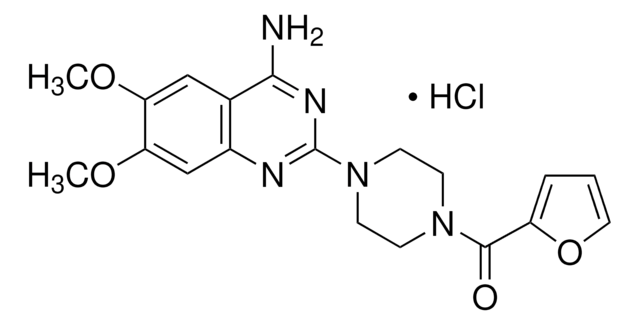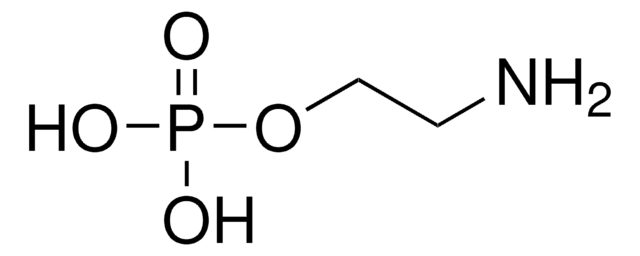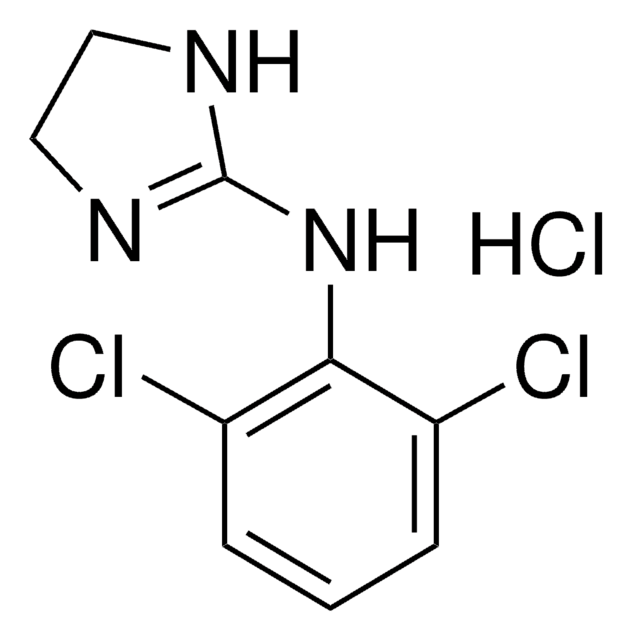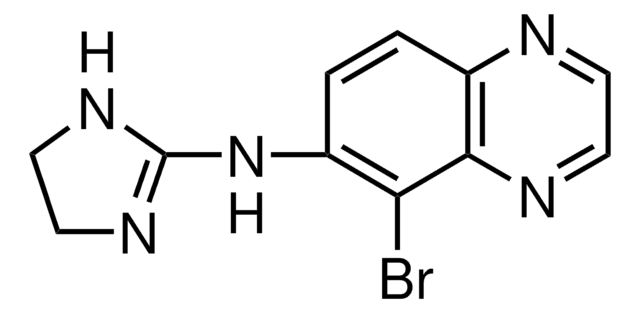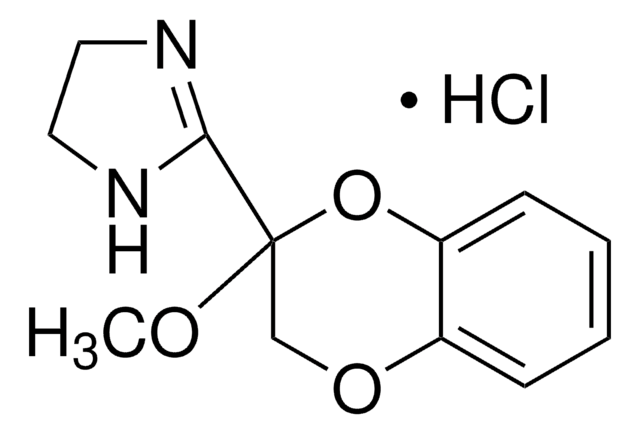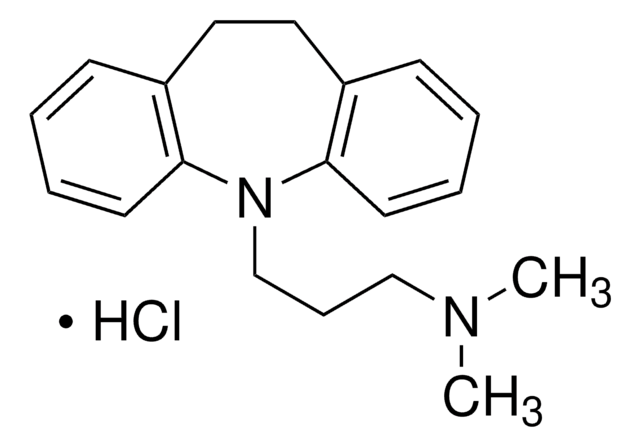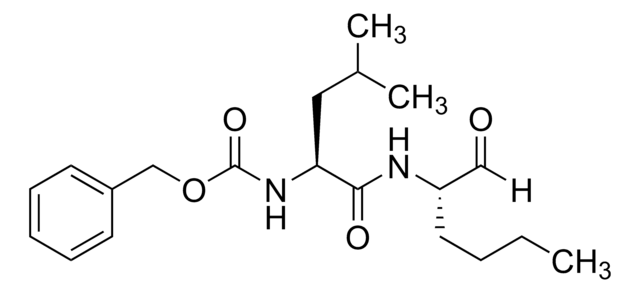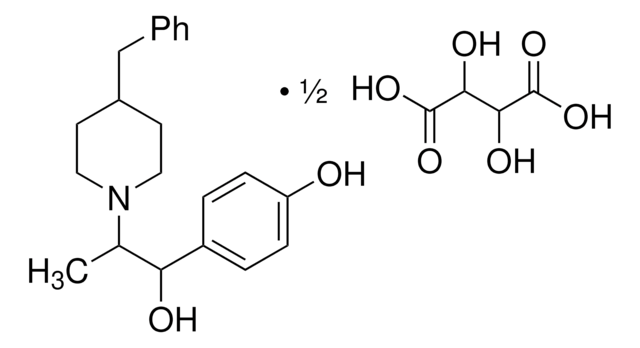I6138
Idazoxan hydrochloride
Synonym(s):
(±)-2-[1,4-Benzodioxan-2-yl]-2-imidazoline hydrochloride, RX 781094
About This Item
Recommended Products
Quality Level
solubility
H2O: 50 mg/mL
SMILES string
Cl.C1CN=C(N1)C2COc3ccccc3O2
InChI
1S/C11H12N2O2.ClH/c1-2-4-9-8(3-1)14-7-10(15-9)11-12-5-6-13-11;/h1-4,10H,5-7H2,(H,12,13);1H
InChI key
MYUBYOVCLMEAOH-UHFFFAOYSA-N
Gene Information
human ... ADRA2A(150) , ADRA2B(151) , ADRA2C(152)
Application
Biochem/physiol Actions
Signal Word
Danger
Hazard Statements
Precautionary Statements
Hazard Classifications
Acute Tox. 3 Oral
Storage Class Code
6.1C - Combustible acute toxic Cat.3 / toxic compounds or compounds which causing chronic effects
WGK
WGK 3
Flash Point(F)
Not applicable
Flash Point(C)
Not applicable
Personal Protective Equipment
Choose from one of the most recent versions:
Already Own This Product?
Find documentation for the products that you have recently purchased in the Document Library.
Our team of scientists has experience in all areas of research including Life Science, Material Science, Chemical Synthesis, Chromatography, Analytical and many others.
Contact Technical Service